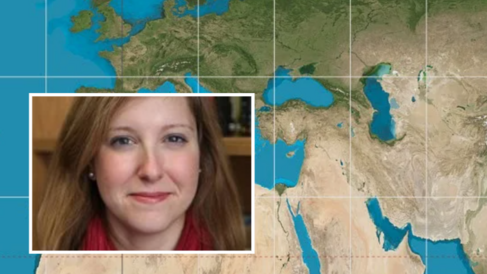Faculty of Divinity, Cambridge & online

About
Scholars of war and security have analysed in depth the extent to which wars and other major security events are socially, politically and economically generative, creating large structural shifts. However, far less has been written systematically analysing the ways in which organized political violence is existentially generative: that is, provoking individual and collective reflection on issues related to existence and to meaning in life. Still, there is evidence, most explicitly by Jewish writers after the Holocaust, that mass political violence has prompted such deliberation, among both intellectuals and ordinary people.
This paper makes a case for further, systematic study of the existentially generative nature of organized political violence. It offers oral history evidence from a project on post-war meaning-making practices and beliefs among the Syrian diaspora to further demonstrate the credibility of such an approach for scholars working in security studies, broadly conceived. Such study should analyse religious modes of meaning making as religions produce shared narratives and practices about questions of ultimate meaning. However, the paper argues in favour of framing such study around the existentially generative, not simply religiously generative, nature of such events.
For example, the Syrian case suggests that non-religious modes of collective and individual meaning making are equally vital to explore in contexts where religious influences have been historically strong, as political violence may throw into flux how individuals and groups engage with religions during and after.
About the speaker
Dr Stacey Gutkowski is a Reader in Peace and Conflict Studies and a member of the Centre for the Study of Divided Societies at King’s College London. Prior to joining King’s, she was an Economic and Social Research Council (ESRC) Postdoctoral Researcher in the Department of International Relations, University of Sussex; a Visiting Scholar at the Center for the Study of Religion and Conflict, Arizona State University; and a Research Associate with the Religion and Ethics in the Making of War and Peace Programme, University of Edinburgh.
Stacey holds a PhD in International Studies from the University of Cambridge, an MPhil in International Peace Studies from Trinity College Dublin and a BA in Philosophy (magna cum laude, Phi Beta Kappa) from Wellesley College.
She is the author of two research monographs, Religion, War and Israel’s Secular Millennials: Being Reasonable? (Manchester University Press, 2020) and Secular War: Myths of Religion, Politics and Violence (I.B. Tauris, 2014), as well as articles and book chapters on the relationships among religion, peace and conflict in Jordan, Israel/Palestine, Lebanon, Syria, Iraq, Egypt, Afghanistan, Northern Ireland, the United States, and Britain. She currently leads Templeton Religion Trust’s initiative Social Consequences of Religion (SCORE) strand of work on Religion and Peacebuilding.
SCORE is poised to be a multi-decade effort to review, synthesise, research and analyse the effects of religious belief, behaviour, and institutions on many crucial domains of human life. Stacey also sits on the Advisory Council for SCORE. She was co-director of the Nonreligion and Secularity Research Network (2008-2020) and sat on its Advisory Board (2020-2022). She was a founding co-editor (2015-2023) of the book series Religion and Its Others: Studies in Religion, Nonreligion and Secularity (DeGruyter).
Practicalities
Rescheduled from 2024, this event is part of the Inter-Religious Research seminar series.
All are welcome to attend. This event will be available to audit via livestream.
Contact
Dr Giles Waller
